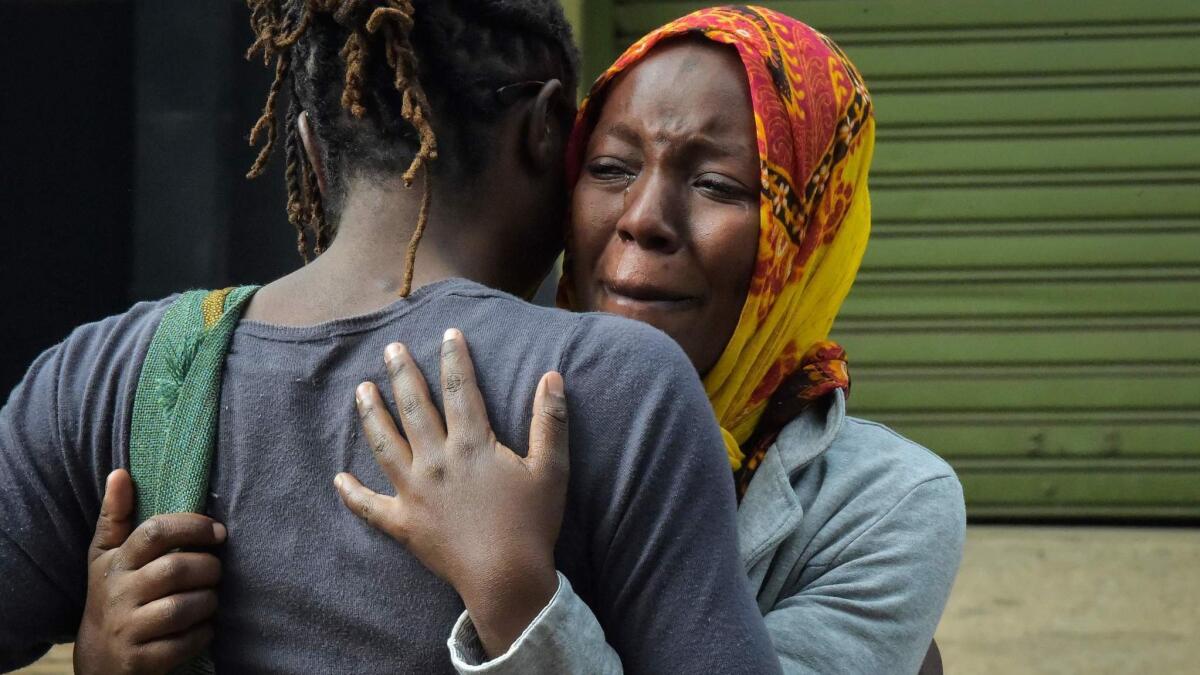Kenya declares hotel siege over with all attackers killed and 14 civilians, including an American, dead

- Share via
Reporting from NAIROBI, Kenya — In a morning address to the nation on Wednesday, Kenya’s president, Uhuru Kenyatta, declared the end of a 19-hour terror attack on a Nairobi hotel and office complex. He said 14 civilians had been killed, as well as all the attackers, and that 700 civilians had been evacuated to safety.
Right up until his announcement, gunshots had continued to ring out from the besieged buildings.
A staff member at a morgue near the hotel had earlier told the Post that the facility had received 15 bodies.
Morgue staff determined that the dead included 11 Kenyans, an American and a Briton, but that two others had not yet been identified.
The U.S. State Department confirmed that one American was killed in the attack.
The attack was claimed by the Al Qaeda-aligned Somali militant group Shabab in statements to international media on Tuesday. It echoed a September 2013 attack by the group at the Westgate shopping mall just a mile away, in which fighters armed with automatic weapons killed 67.
Throughout Tuesday afternoon and evening, hundreds of guests at the DusitD2 hotel and workers in its adjoining office complex hid under desks, locked themselves in rooms, or ran for cover as the attack unfolded. Gunfire was audible throughout the night and into the morning.
On Wednesday, Nairobians came out in large numbers to donate blood. The city regained its regular buzz and congestion as its approximately 4 million people went back to work.
Like the Westgate attack, Tuesday’s seemed to be aimed at Kenyan professionals and foreigners. It also demonstrated how capable Shabab was of carrying out attacks outside Somalia despite a dramatic increase in airstrikes against them by the Kenyan air force and the U.S. military.
Details of some of the victims became known by Wednesday morning as colleagues and family members announced the deaths of co-workers and loved ones.
Among the dead was Jason Spindler, an American business executive who was the CEO of a consulting firm that has its Africa headquarters in the complex that was attacked.
A friend of Spindler’s wrote of him on Twitter, “Jason Spindler was one of those rare men who was loved by pretty much anyone he touched in Kenya and around the world ... He chose a life of hope and inclusion. I am grateful to have known and learned from him.”
Max Bearak writes for the Washington Post.
More to Read
Sign up for Essential California
The most important California stories and recommendations in your inbox every morning.
You may occasionally receive promotional content from the Los Angeles Times.










